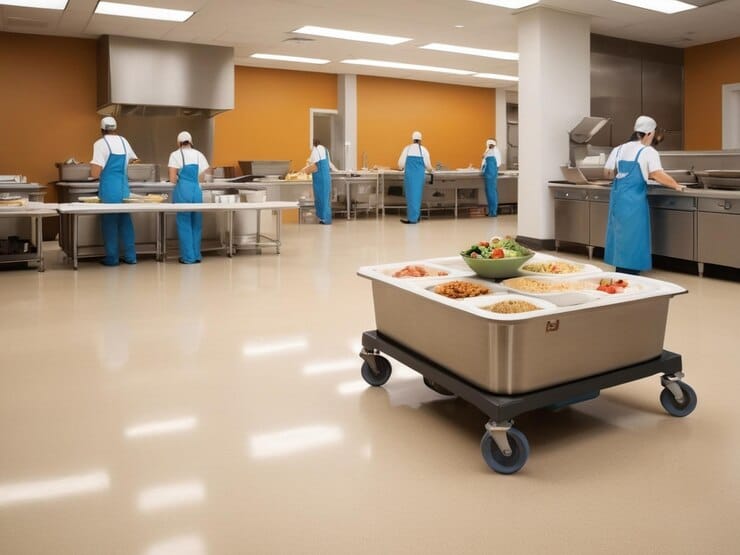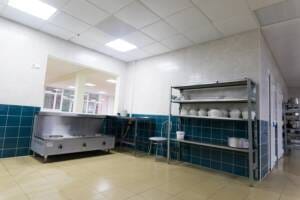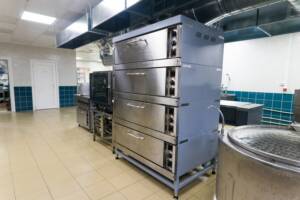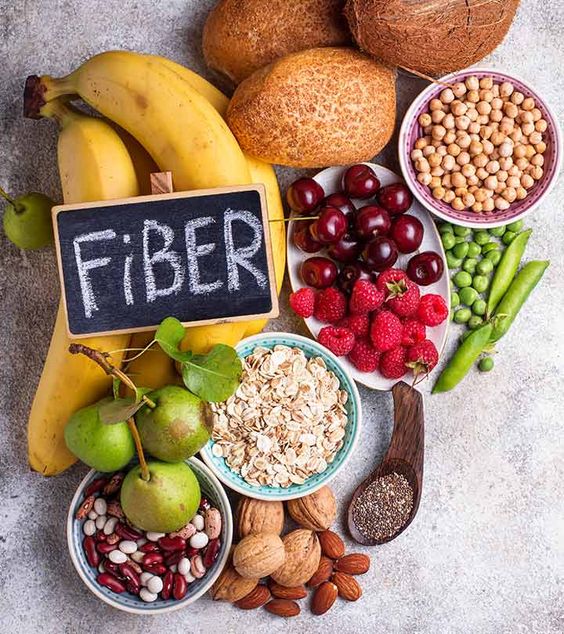
The central kitchen in hospitals is a vital element in managing food provision for patients and staff.
In this article, we will discuss the role of the central kitchen in hospitals in improving the quality of food services, distributing meals, and ensuring that patients’ nutritional needs are adequately met. We will also discuss the challenges that this type of kitchen may face and how to improve it.
What is the central kitchen in hospitals?
The central kitchen in hospitals is the system in which meals are prepared and prepared for all departments in the hospital. This system is characterized by allowing food to be prepared in large quantities and distributed to all departments, whether for medical departments or for employees and visitors. The central kitchen works to ensure that food is prepared in a uniform manner and is appropriate for the needs of patients, whether those needs depend on the type of food or the specific diet.
The importance of the central kitchen in hospitals
The importance of the central kitchen in hospitals lies in several main aspects:
1-Organization and quality control: The central kitchen provides a controlled environment through which the quality of food provided to patients can be controlled.
2- Customization according to medical needs: The central kitchen can adapt meals to the needs of patients, whether they need low-fat or high-protein meals or follow a special diet.
3- Effective distribution: The central kitchen in hospitals helps organize the process of distributing food to patients in a flexible and effective manner, which contributes to saving time and effort.
4- Reducing waste: Thanks to central preparation, the amount of food wasted or unused can be reduced, thus improving the hospital’s economic efficiency.
Important elements in organizing the central kitchen in hospitals
Managing the central kitchen in hospitals requires good planning, as well as coordination between the various departments in the hospital. The most important factors that affect the organization of the central kitchen are:
1- Kitchen engineering design: The design of the central kitchen must be appropriate for the workload and ensure smooth operations. It is preferable for the kitchen to contain separate areas for preparing food, washing dishes, and storing food.
2- Food safety management: The central kitchen must adhere to the highest food safety standards, including storing food at safe temperatures, and preparing meals in a way that prevents contamination.
3- Employing trained personnel: The central kitchen needs a staff trained to deal with preparing meals in a medical environment, where workers must have extensive knowledge of healthy nutrition and the special nutritional needs of patients.
4- Using modern technology: Modern technologies can contribute to improving the cooking and distribution process within, such as meal tracking systems and efficient food storage.
Challenges facing the central kitchen in hospitals
Despite the benefits of the central kitchen in hospitals, there are some challenges that it may face. The most prominent of these challenges are:
1-Dealing with the needs of different patients: It is difficult to ensure that the needs of each patient are met individually, especially when these needs are diverse and precisely defined.
2-Pressure on human resources: With the increase in the number of patients, workers in the central kitchen may face tremendous pressure to provide healthy meals on time.
3-Supervising food safety: Maintaining food safety in a stressful environment can be a major challenge. Strict standards must be followed to avoid contamination and ensure food quality.
How can the effectiveness of the central kitchen in hospitals be improved?
Achieving efficiency in the central kitchen requires taking advantage of several strategies to improve its performance, including:
1-Proper meal planning: Dietary plans must be developed that take into account all patients’ nutritional needs, taking into account seasonally available foods.
2-Regular quality control: The need to continuously review operations within the kitchen to ensure the provision of high-quality food.
3-Using innovative cooking techniques: Using modern techniques such as steaming or rapid cooking can help improve food quality and reduce preparation time.
How to manage the central kitchen in hospitals efficiently
To ensure that the central kitchen in hospitals operates efficiently, an organized approach must be followed that includes a set of interconnected processes that aim to improve productivity and reduce errors. Among these processes, inventory management is a key element that must be paid attention to. By using modern inventory management systems, the central kitchen can ensure that all the necessary ingredients are available to prepare meals on time without waste or shortage of materials. These systems include tracking expiration dates and analyzing consumption to ensure that food is not wasted and is used efficiently.
Improving the workflow in the central kitchen in hospitals using technology
Relying on technology in managing the central kitchen is one of the basic steps to improve performance and reduce human errors. Electronic systems can be used to store data related to patients and determine their diets, which facilitates the preparation and distribution of meals. In addition, modern cooking techniques such as high-efficiency cooking ovens or rapid cooling systems can be used to ensure that food is served at its best and with the highest quality standards.
The Importance of Training Staff in the Central Kitchen
One of the major challenges facing the central kitchen in hospitals is maintaining a high level of training among staff. All employees must be fully aware of food safety practices and cooking instructions that suit patients’ diets. They must also be trained to use modern equipment efficiently, as well as develop their time management skills to ensure meals are served at the specified times.
The central kitchen in hospitals and the impact on the patient experience
When the central kitchen in hospitals is well organized, it contributes to improving the patient’s overall experience. Food is not just a nutritional need, but an essential part of the patient’s experience in the hospital. Having a balanced diet that is appropriate for the patient’s health condition can positively affect their recovery. Therefore, providing delicious and healthy meals at the right time is an important factor in raising patients’ morale and motivating them to recover.
Future trends for the central kitchen in hospitals
The needs of hospitals and health facilities are constantly changing, requiring the central kitchen to adapt to these changes. One future trend that may play a major role is the reliance on artificial intelligence in planning and allocating meals based on the patient’s health data. Improving the sustainability of food operations by reducing energy and water consumption, and using sustainable local ingredients, has become a priority for the central kitchen in the future.
The central kitchen in hospitals and its impact on operating costs
Achieving efficiency in the central kitchen in hospitals has a direct impact on operating costs. Through good planning and improving operations, food and resource waste can be reduced, leading to significant cost savings. It also enhances the hospital’s ability to purchase materials in larger quantities at better prices, which contributes to reducing operating costs.
In conclusion, the central kitchen in hospitals is an essential element in improving the quality of healthcare by providing healthy and safe food services to patients. By organizing the central kitchen effectively and applying the latest management methods and technology, hospitals can ensure that appropriate meals are provided according to each patient’s needs, which contributes to enhancing their experience in the hospital and accelerating their recovery.
If you are looking for innovative solutions or are looking to improve the performance of your hospital’s central kitchen, ProNano Food Industry Consulting offers you full support. Whether you need specialized consultations on kitchen design or improving food operations within the hospital, our team of experts is ready to provide customized strategies to ensure efficiency and quality in all aspects of the hospital’s food system. Contact us now for a specialized consultation that will help you achieve the best results for your central kitchen.
Read more about the central bakery in cafes



